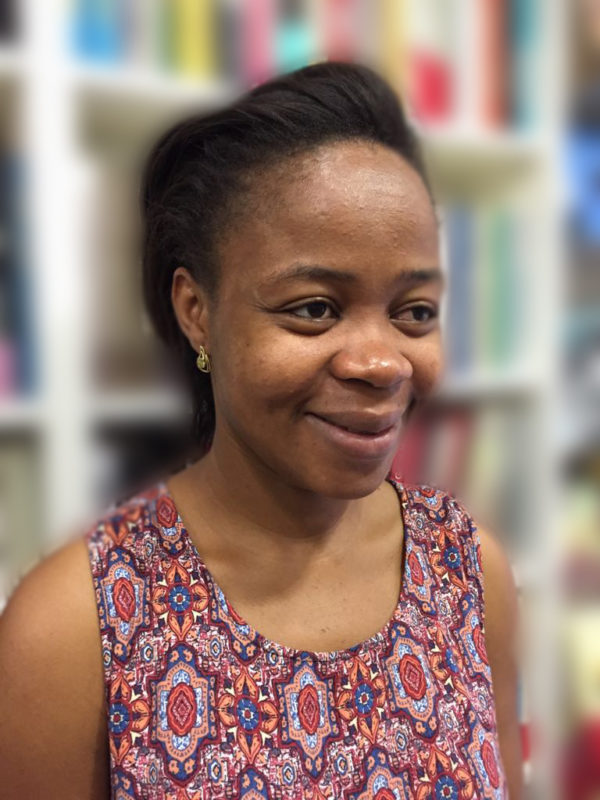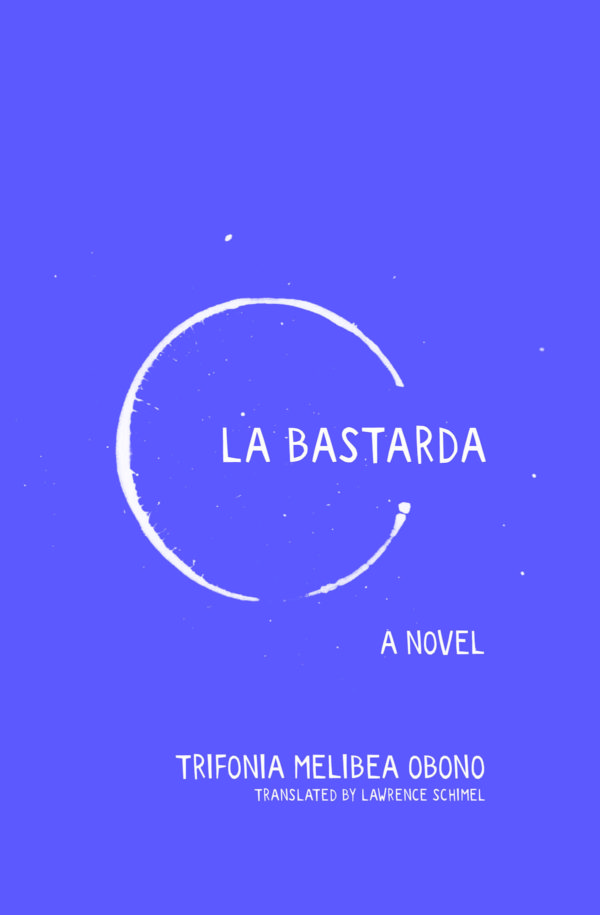
Trifonia Melibea Obono’s La Bastarda, the first English-language novel by a woman from Equatorial Guinea, has been named an honour title for the inaugural Global Literature in Libraries Initiative (GLLI) Translated Young Adult Book Prize. Written in Spanish and translated by Lawrence Schimel, La Bastarda was released in the US by Feminist Books on 17 April 2018, in South Africa by Modjaji Books, and was distributed in the UK by Turn Around.
GLLI is an organisation of translators, librarians, teachers, and editors committed to “helping librarians identify and raise the visibility of world literature for children, teens, and adults.” Its activities include creating pan-publisher catalogs, maintaining a database of translations, sharing ideas for selecting, evaluating, using and promoting world literature for all ages, and administering the GLLI Translated YA Book Prize.
The prize was won by Japanese writer Gengoroh Tagame’s My Brother’s Husband: Vol. 1 & 2, translated from the Japanese by Anne Ishii and published Pantheon Books. Alongside La Bastarda, the two other honour books were French writer Clémentine Beauvais’ Piglettes, translated from the French by the author and published by Pushkin Children’s Books, and Swedish writer Sara Lövestam’s Wonderful Feels Like This, translated from the Swedish by Laura A. Wideburg and published by Flatiron Books.

Trifonia Melibea Obobo was born in Evinayong, Equatorial Guinea, in 1982. She is a professor in the Faculty of Literature and Social Science of the National University of Equatorial Guinea and is also part of the Afro-Hispanic Studies Center of the National University of Distance Education (UNED) in Spain. She is completing a PhD in Gender Studies at the University of Salamanca, Spain. La Bastarda is her third novel, following Herencia de bidendee (2016) and La albina del dinero (2018). She has a collection of short stories forthcoming later this year.
La Bastarda comes with an Afterword by Abosede George. Here is a description by its US publishers Feminist Press.
The first novel by an Equatorial Guinean woman to be translated into English, La Bastarda is the story of the orphaned teen Okomo, who lives under the watchful eye of her grandmother and dreams of finding her father. Forbidden from seeking him out, she enlists the help of other village outcasts: her gay uncle and a gang of “mysterious” girls reveling in their so-called indecency. Drawn into their illicit trysts, Okomo finds herself falling in love with their leader and rebelling against the rigid norms of Fang culture.
The novel drew advance praise. Cheryl Clarke, author of Living as a Lesbian, called it “an invaluable contribution to lesbian and gay literary culture.” Here is a blurb from Alexis Pauline Gumbs, author of M Archive: After the End of the World:
“A breakthrough novel that tells the world, from an Equatorial Guinean perspective, that there is so much necessary life outside of, beyond, before, and after patriarchy. For those of us who have been told that we do not exist. That we cannot exist. That we should not exist. This groundbreaking story full of love and nurturing is a spell for remembering that we do exist, we have existed, and that we must support each other to exist and thrive as who we are.”
Here is another from Maggie Thrash, author of Honor Girl:
“Though I live a world away from Equatorial Guinea, I saw so much of myself in Okomo: a tomboy itching to be free and to escape society’s rigged game. I cheered her on with every page, and wished—for myself and all girls—for the bravery to create our own world.”
Equatorial Guinea was colonized by Spain—the only African country taken by Spain—and naturally, its literary output has been fed into the Spanish language. The first English-language novel from the country is Donato Ndongo’s Shadows of Your Black Memory (Swan Isle Press, 2007), first published in 1987 in Spanish as Las tinieblas de tu memoria. In 2014, an anthology, New Writing from Equatorial Guinea, was published. The anthology’s introduction, which appears in Words without Borders, is by Jethro Soutar, who translated Abdulai Sila’s aforementioned groundbreaking novel from Guinea-Bissau and wrote an essay on it, an essay published by us.
La Bastarda is translated by the two-time LAMBDA Award-winning Lawrence Schimel, who has done much work in translating Anglophone African literature into Spanish. He co-translated, with Arrate Hidalgo, the forthcoming Spanish-language edition of Koleka Putuma’s Collective Amnesia. He and Hidalgo had previously translated Makhosazana Xaba’s anthology Like the Untouchable Wind for the Spanish publishers Baphala, which specializes in postcolonial literature about queerness. Baphala is the Spanish-language publisher of Kenyan Ghalib Shiraz Dhalla’s 2002 novel Ode to Lata and Zimbabwean Tendai Huchu’s 2010 novel The Hairdresser of Harare.
Congratulations to Trifonia Melibea Obobo.
Find out more about the prize HERE.









COMMENTS -
Reader Interactions